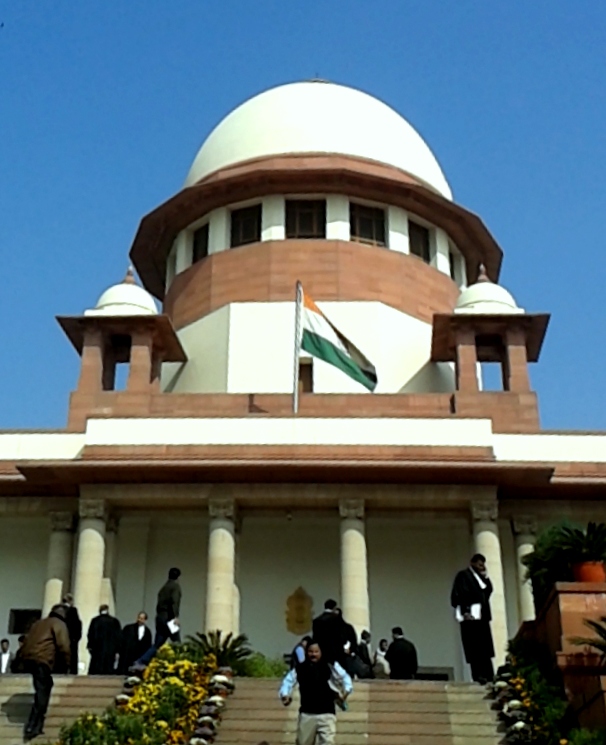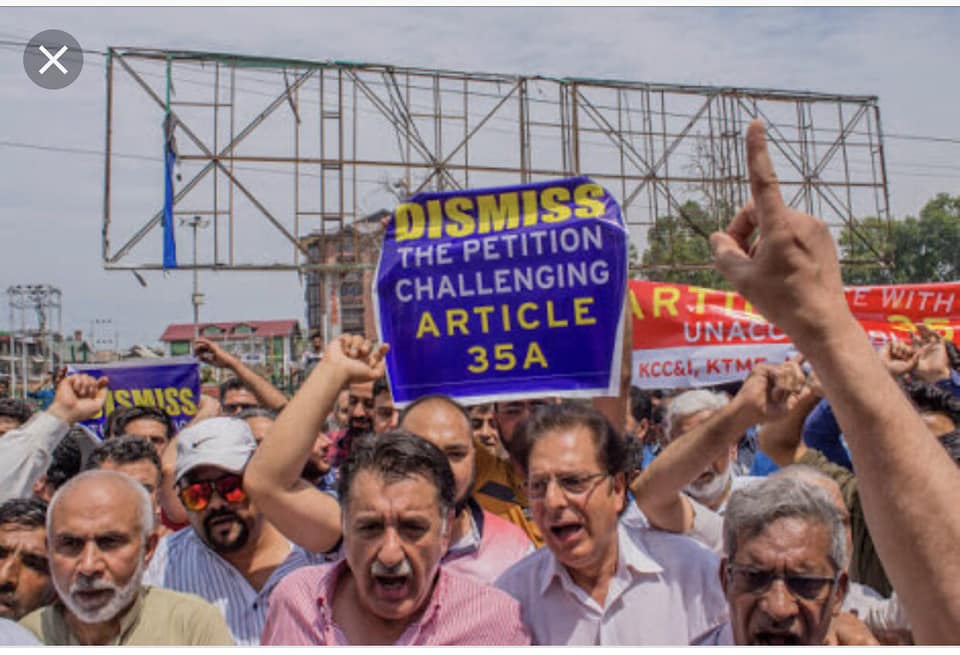There is tension brewing in the state of Jammu and Kashmir while the Supreme Court deliberates on the constitutional validity of Article 35A of the Constitution. Until very recently, Article 35A was unknown in the public domain.
While the hearing was scheduled to take place on August 6, 2018, it has now been deferred to August 27, 2018.

Photo Source: Wikimedia Commons
By a writ petition filed in 2014 by the Delhi-based NGO, We the Citizens, the Supreme Court looked into the constitutional validity of Article 35A, which essentially grants special privileges to the ‘permanent residents’ of Jammu and Kashmir.
Here’s what you need to know about the contentious article:
1. Article 35A came into being in 1954 by a Presidential Order, which was a part of the deal struck between the Republic of India and Hari Singh (the then Maharaja of Kashmir) to protect the privileges of Kashmiri residents from outsiders.
2. Article 35A grants special rights to the permanent residents of Jammu and Kashmir.

3. It disallows non-residents from buying or owning immovable property, settling permanently, or availing themselves of state-sponsored scholarship schemes. This kind of restriction violates fundamental rights under Articles 14, 19 and 21 of the Constitution.
4. Until 2002, the article denied property rights to women who married from outside the state. However, a landmark judgment in 2002 changed that. The Jammu & Kashmir High Court held that women married to non-permanent residents would not lose their rights. In such cases, though, the children don’t have succession rights.
5. The petition also stated that Article 35A goes against the spirit of the “oneness of India” as it creates “a class within a class”.
With each party bringing to the debate their points and perhaps, agenda, this is naturally a politically charged topic. Only time will tell what the apex court deems in store for the state and as a result, the unity of the Indian nation.
(Edited by Shruti Singhal)